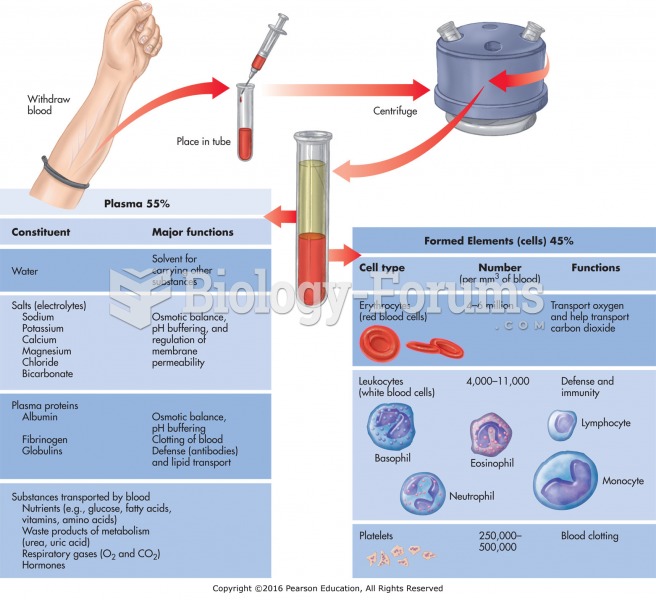|
|
|
Fatal fungal infections may be able to resist newer antifungal drugs. Globally, fungal infections are often fatal due to the lack of access to multiple antifungals, which may be required to be utilized in combination. Single antifungals may not be enough to stop a fungal infection from causing the death of a patient.
If you could remove all of your skin, it would weigh up to 5 pounds.
Most childhood vaccines are 90–99% effective in preventing disease. Side effects are rarely serious.
The first oral chemotherapy drug for colon cancer was approved by FDA in 2001.
Interferon was scarce and expensive until 1980, when the interferon gene was inserted into bacteria using recombinant DNA technology, allowing for mass cultivation and purification from bacterial cultures.







